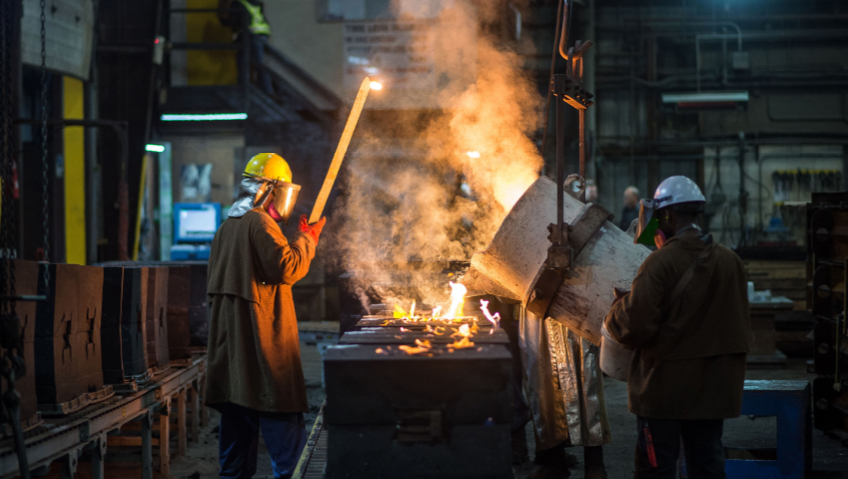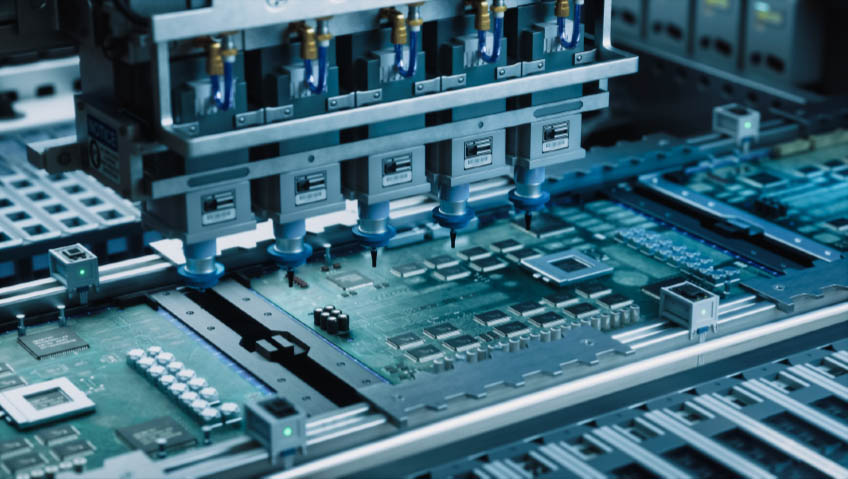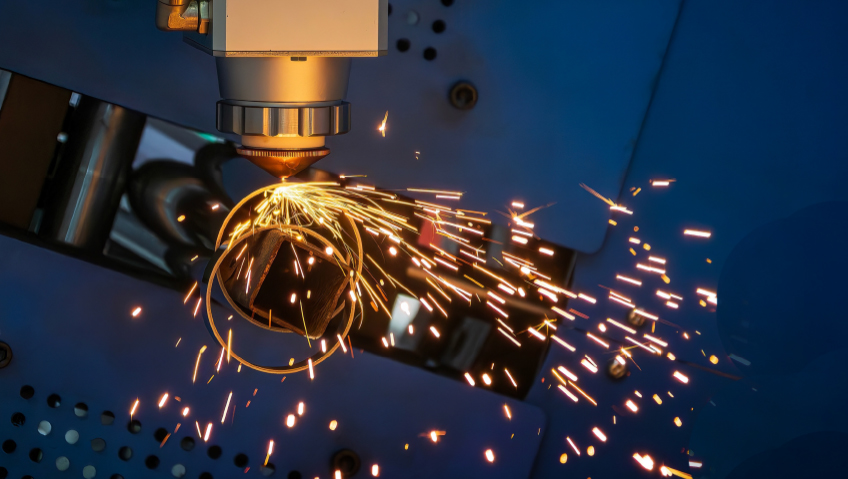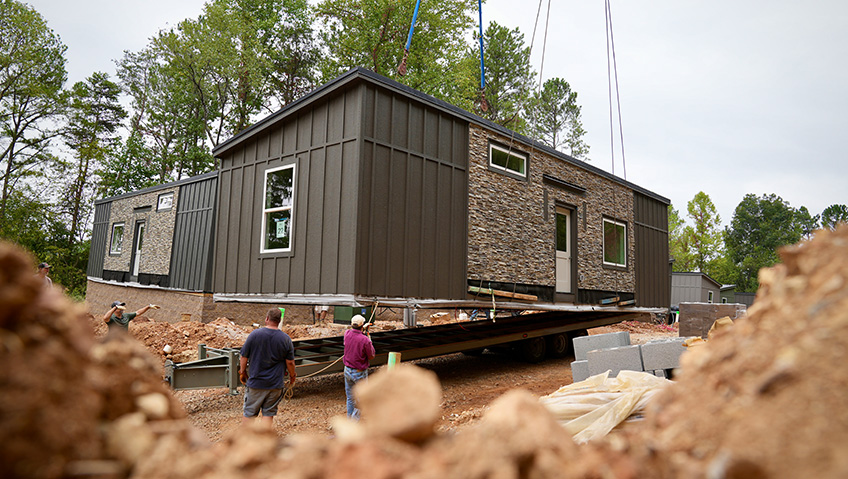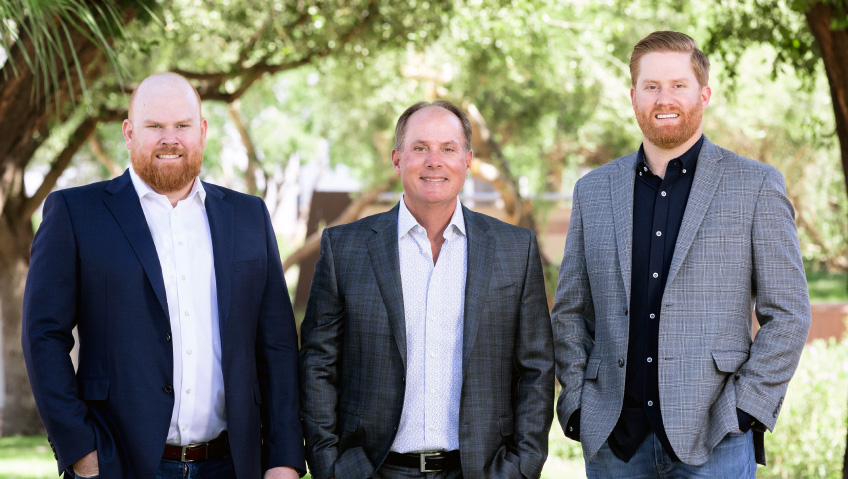Embracing a strong belief in long-term business growth and continuous improvement, Canerector focuses on expanding rather than selling its acquired companies, cherishing their history, culture, leadership, and knowledge and, through its incentive program and aversion to bureaucracy, promoting an entrepreneurial mindset.
With ownership of 3.8 million square feet of production facilities spread across North America and more than 50 independent acquired enterprises, Canerector serves clients in a variety of international end markets in industrial product design, engineering, fabrication, machining, casting, and construction in areas including aerospace, agriculture, energy, forestry, infrastructure, mining, nuclear, and transportation.
To date, the company has completed more than 75 acquisitions and mergers, constantly striving to support and respect each company’s unique histories, legacies, and teams who founded them, along with providing them the freedom to run independently and devise their own plans by minimizing bureaucracy and centralization.
“Every year, in a different North American location, we have a leadership conference where we host the Presidents and General Managers of our businesses and their spouses,” says Daniel Lee, Vice President of Canerector, who also leads the company’s Mergers and Acquisitions activities. “This year being the 75th anniversary. We celebrated in Toronto, which is where our head office is headquartered.”
Along with the almost four million square feet of manufacturing facilities, Canerector boasts more than 2,500 employees, third generation family ownership, and almost $1 billion in revenue—while being completely debt-free.
“It’s been quite a journey through our history,” says Lee. “We’re a very large and diversified company.”
Originally based in Montreal, the company’s predecessor business, Canadian Erectors Limited, was established in 1947 by three partners. When they decided to retire after a long and successful run, company leader Stan Hawkins enlisted son Cecil to help buy them out. Through Cecil’s leadership, the company transformed into Canerector, experienced a period of expansion through acquisition, and quickly evolved into a geographically diverse operation thanks in part to Cecil’s vision for growth. Canerector leadership has now passed the third generation, with Amanda Hawkins becoming CEO in 2015, bringing new energy and a longer horizon for reinvestment, expansion, and improvement.
“It is a family company with a reinvigorated appetite for growth,” Lee says.
This growth included acquisitions, with the company making its first in 1979 and another in 1980, purchasing two very successful businesses that operated in markets quite different from the original Canerector and spurring the company to continue down the acquisition path. The biggest challenge came in 1983 following the purchase of a publicly traded company with three businesses, which incurred significant debt.
“That was a very difficult period in our history,” says Lee. “We were taught critical business lessons and were forced to evolve quickly from a single business to a much larger, geographically diverse enterprise.”
Although forced to close the original Montreal location in 1984, Canerector emerged tougher and stronger than ever, realizing it had very little margin for error.
“We learned some very hard lessons, such as if you embark on restructuring, you have to move quickly, act quickly and make decisions quickly,” Lee says. “At the time, the changes took five years to complete; in hindsight, this is something that could have been done in six months. Those five years cost the company a lot of resources, and were challenging and difficult for everybody.”
This spurred the company to shift its approach to one of simplifying and making business decisions in a more expeditious manner.
“From that, Canerector the holding company was born,” Lee says. “We went through a period of acquiring a lot of companies, and Canerector grew enormously under Cecil’s watch. We’ve acquired over 70 companies during our history and some of them have been merged, so we now have 50 companies in total.”
Keeping faithful to the family tradition, in the early 2000s, Cecil’s daughter Amanda Hawkins started working in various companies in the Canerector portfolio, from the plant to the office environment, learning everything about the business in different companies across Canada and the United States. Following further involvement in management roles, Amanda became Canerector’s CEO, rounding out three generations of company history.
“This is one of the factors that we think separates us from other companies,” Lee says. “We can relate to and understand family companies. A lot of companies who have owners who have sold to us are family companies themselves, and we want to continue that legacy.”
As a holding company, Canerector doesn’t rename the companies it acquires, a fact that Lee thinks is especially appealing to owners. “They get to exit their business, but not the legacy they built, the name. When we buy the company we usually buy the real estate also,” he says. “That demonstrates to our employees and our customers that we’re not going away. It demonstrates our long-term commitment.”
Acquisitions also aren’t moved offshore, allowing the manufacturing to remain where it is.
“If you’re an owner who built this company and you’re selling to Canerector, one of the benefits is you could be driving down that same road 20 to 30 years later and your company name will still be right there at that same location,” Lee says. “I think family companies can understand and value that. This commitment to legacy and history truly makes Canerector different.”
In 1990, Canerector made its first U.S. acquisition and began expansion into the States, where it now owns many businesses.
“Canerector has a very strong balance sheet,” Lee says. “Being debt-free really helps us. We have a decentralized management philosophy. The companies we acquire are led by a local President or General Manager, so it’s not the Canerector head office running everything. When we buy a company we want to make sure there’s a strong leader and management team locally.”
This strategy allows a business located anywhere in North America to adapt to the situation, know the local market, and maintain localized decision making relevant to their geographic region.
It’s important for business owners who are looking to sell or exit their business to understand the distinct difference between selling to Canerector and private equity firms. “Private equity often uses borrowed money to leverage, whereas Canerector is a family office with no debt. Our offers are not contingent on debt financing and we pay cash for our acquired companies,” Lee says. “Private equity companies are going to leverage the assets; they’re going to load a whole bunch of debt to any acquired company so they can buy more companies.”
Canerector doesn’t employ leverage at all, meaning its deal isn’t dependent upon financing or the banks.
“If we like a company and we come to terms, we can close the deal very quickly,” says Lee. “One big benefit is we can be very expeditious in closing because we’re independent and financially strong. We don’t rely on a bank or financial institution to fund or drive our deals.”
Private equity companies also often implement extreme cost cutting to show a better return on investment to investors and shareholders, whereas Canerector looks to build value and invest in long-term growth.
“We are willing to take the earnings generated from the business and use it to reinvest in that company for growth. We believe in organic growth and being there for the long haul, not just some short-term [approach] of using the company, squeezing all costs out, chopping it up and selling it.”
With the belief that many private equity firms end up destroying long-term value, Canerector keeps companies decentralized and encourages entrepreneurialism, a viewpoint central to its philosophy and one that will benefit shareholders and employee in the long term.
“Often when a company is purchased by a private equity [firm] or even a public company, they may flip the company in three to five to seven years. Canerector holds long-term. In fact, we’ve only sold one company that we’ve ever purchased,” says Lee.
“Anyone who’s owned their own business has, at some point, had to face a number of issues that only a business owner would understand, including thinking about access to funding and cash flow, issues Canerector fully appreciates,” he adds.
“You could argue that a lot of larger publicly traded companies have a lot of bureaucracy and family-owned businesses need to be nimble, keep things simple and make decisions quickly,” he adds. “If you have too much bureaucracy or you lack access to funding, that creates an inability to act quickly and take advantage of market conditions.” Small companies understand that those both inhibit growth.
Canerector understands growth well, with big plans in the coming years for acquisitions and expansion after emerging from COVID.
“We feel we’ve come out of COVID a much stronger company with excellent best practices, and positioned for strong growth going forward,” says Lee. “We’re now investing in our sales organizations so we can reach new markets.”
It was a tough period, but the company emerged leaner than before, and hopes to add at least one to two companies a year going forward, he says.
The company not only likes to build value, it also has a very strong incentive plan, not just for the president, but for department managers and shop employees. “We believe incentivizing our employees helps align their goals with our goals,” says Lee.
Canerector is also continuing to invest in its companies, having spent a significant amount on capital expenditures for new equipment so it can extensively tackle purchases and improve manufacturing efficiency. “We’re very much in a position right now for growth,” Lee says. “The next couple of years are about growing organically by investing in new equipment, sales teams and then growing through acquisition and adding new companies to the Canerector family.”

